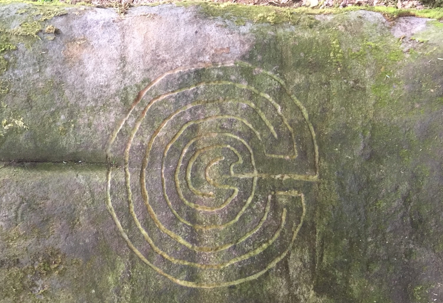Elul has begun! As Jews, this is a traditional time of self-reflection to prepare for the High Holidays where we ask for forgiveness from family, friends, and G-d. Ample time for self-reflection and quiet contemplation is a side of Judaism that COVID has unintentionally provided.
This Week’s Tip: Learn and ask friends of a different faith where contemplation fits into their worship. How is COVID, which is forcing us to pray alone, helping them to explore this side of their religion?
We all look Inward – especially During COVID
Recently, 2 for Seder moderated a webinar with Interfaith Community Dialogue (ICD) featuring six different faiths. A question came up from an audience member: since we cannot gather, how is your faith “handling” this pandemic? Turning to contemplation and meditation in the quest of enlightenment, awareness and self-knowledge was the answer across all groups.
There is no right way to contemplate, meditate or pray, but we can be inspired from each other and bring new elements to our own prayer. Here are a few examples.
 Christian
Christian
While different denominations have a variety of traditions, contemplation helps focus on the concept of G-d and being inspired and finding peace. Christian tools for contemplation include the rosary (primarily Catholic) and the labyrinth, a path or maze to walk around to relax and be mindful of the moment. A labyrinth can even be a maze on a page or a rock so you can take peacefulness with you.
Hindu
While yoga is partially derived from Hindu meditation practices, the hour before dawn is a particularly perfect time for contemplation and meditation. The mind is inherently still at dawn and the beauty of the rising sun helps you connect with creation and Brahma the Creator.

Muslim
The Prophet Muhammad was meditating in a cave on Mount Hira when the Angel Jibril came to him. We asked Omar Nassimi, Program Manager at MakeSpace for some insights on how this inspires Muslims to contemplate and meditate.
“For Muslims, contemplation is an essential component of living a wholesome life. In the Quran, G-d actually emplores us as humans to look around us in the world, toward nature, the cycles of the sun and moon, towards the mountains and seas, birth, death, and to contemplate the meaning of life. In this time where everyone is going through so many difficulties, it perhaps is also a time where we can increase our reflection about the state of the world, and what our role could be in it. Hopefully this is a means of us increasing our service and care for others, as well as our contemplation and reflection about how to live better.”
How does understand Contemplation across faiths fight Hate and anti-Semitism?
Mindful contemplation helps you know yourself, then helps you reach out to others. Know yourself and you are more open to others. Understanding each other brings a greater appreciation for our differences, increasing tolerance and respect.
 Preparing for the High Holidays
Preparing for the High Holidays
Our next four newsletters will switch from Action Tips to the High Holidays and our new program 2 for Seder: In the Sukkah. We are excited to help us all find joy in this unusual holiday season while still pushing back on anti-Semitism.

